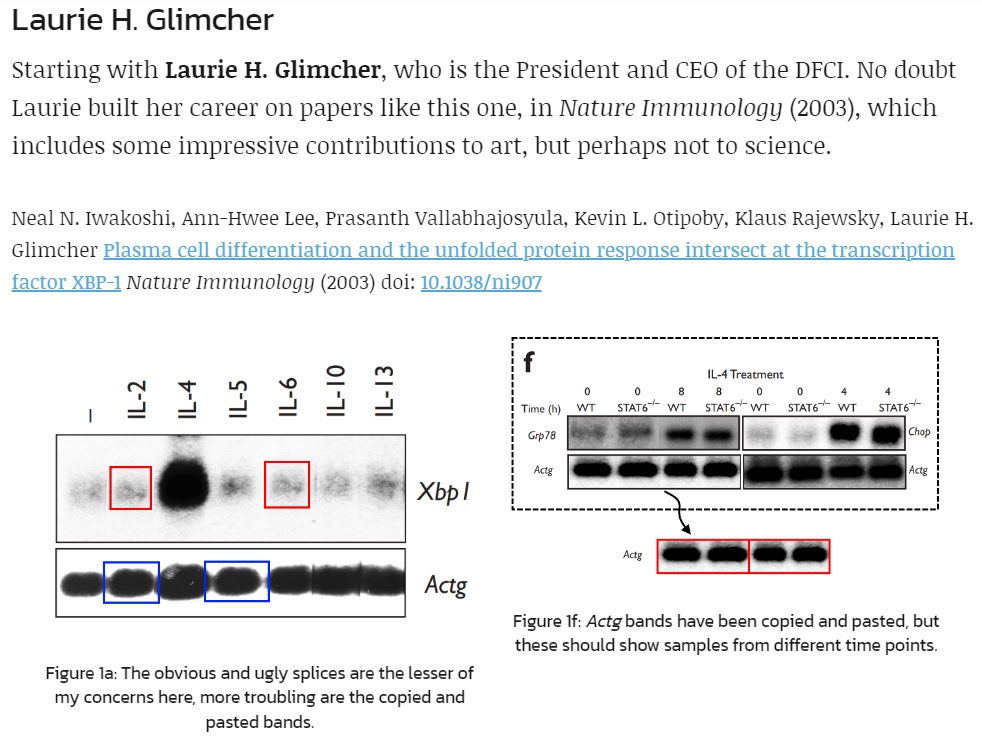Report: Top Harvard Cancer Researchers Accused of Faking Data, Committing Scientific FraudChris MenahanInformationLiberation Jan. 24, 2024 |
Popular 
Ted Cruz Reveals U.S. Helping Israel Carry Out Military Strikes on Iran

Pentagon Official Purged From Joint Chiefs of Staff for Posts Calling Israel 'Our Worst Ally'

Trump Confirms U.S. in War With Iran, Threatens Khamenei With Assassination

U.S. Says It Won't Join War If Iran Doesn't Target Americans - While Moving in Carrier Strike Group

Trump Orders Tehran to 'Immediately Evacuate'; Suggests War With Iran is 'America First'
  Top Harvard cancer researchers, including Dana-Farber Cancer Institute President and CEO Laurie Glimcher, are being accused of faking data and committing scientific fraud. Top Harvard cancer researchers, including Dana-Farber Cancer Institute President and CEO Laurie Glimcher, are being accused of faking data and committing scientific fraud.From Ars Technica, "Top Harvard cancer researchers accused of scientific fraud; 37 studies affected": The Dana-Farber Cancer Institute, an affiliate of Harvard Medical School, is seeking to retract six scientific studies and correct 31 others that were published by the institute's top researchers, including its CEO. The researchers are accused of manipulating data images with simple methods, primarily with copy-and-paste in image editing software, such as Adobe Photoshop.David said on his website that such fraud explains "why the progress in cancer research is so slow despite billions being invested into basic research."   David shared dozens of pictures like the one above showing dozens of researchers allegedly copy/pasting and faking their data. "[W]e only see the tiny tip of the fraud iceberg – image data duplications, the last resort of a failed scientist after every other trick failed to provide the desired result," David said. "Billions of dollars were burned for this cancerous trash science, but it made many academic careers, some got very rich, and entire dynasties established themselves at Dana Farber." From Nature, "Dana-Farber retractions: meet the blogger who spotted problems in dozens of cancer papers": NATURE: What's your usual process when you're combing through a paper?The scale of the alleged fraud is staggering but it's not all that surprising considering the billions of dollars in government grants flowing to these institutions for "research." You have to wonder how many more medical breakthroughs we'd already have if such institutions weren't run by (alleged) shysters. [Header image of Laurie Glimcher by World Economic Forum / Greg Beadle, CC BY-NC-SA 2.0 DEED] Follow InformationLiberation on Twitter, Facebook, Gab, Minds and Telegram. |



